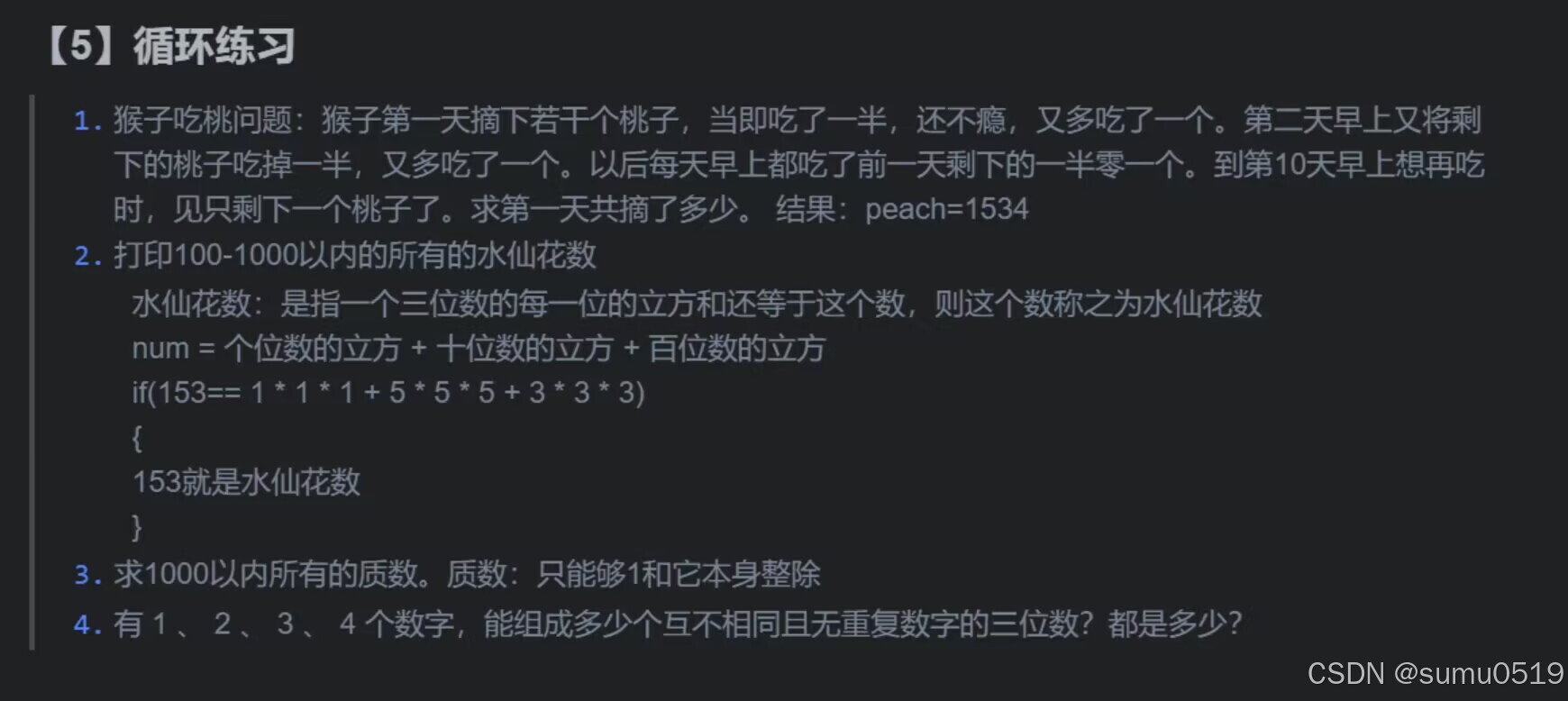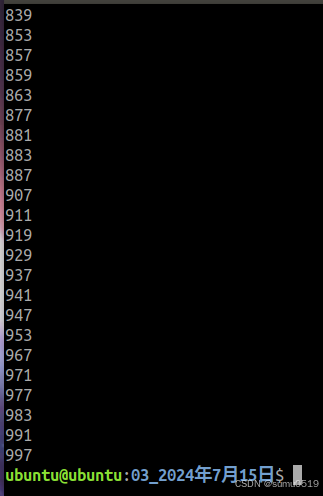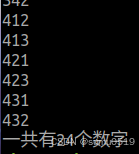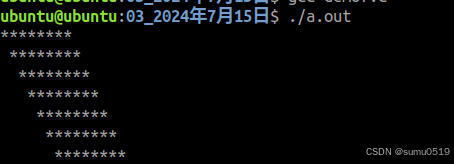第一题
#include "stdio.h"
int main(int argc, char *argv[])
{
int count = 0;
for (int i=200; i<=2000; i++)
{
count = i;
for(int j=0; j<9; j++)
{
count = (count/2)-1;
}
if(count==1)
{
printf("%d\n", i);
break;
}
}
return 0;
}第二题
#include "stdio.h"
int main()
{
int i,j,k,n,m,sum;
for(i=100;i<=1000;i++)
{
sum=0;
n=i;
while(n!=0)
{
m=n%10;
sum=sum+m*m*m;
n=n/10;
}
if(sum==i)
{
printf("%d\n",i);
}
}
return 0;
}第三题
#include <stdio.h>
int main()
{
int i,j,flag;
for(i=2;i<=1000;i++)
{
flag=1;
for(j=2;j<=(i/2);j++)
{
if(i%j==0)
{
flag=0;
break;
}
}
if(flag==1)
{
printf("%d\n",i);
}
}
return 0;
}第四题
#include <stdio.h>
int main()
{
int count=0;
for(int i=1;i<=4;i++)
{
for(int j=1;j<=4;j++)
{
for(int k=1;k<=4;k++)
{
if(i!=j && i!=k && j!=k)
{
printf("%d%d%d\n",i,j,k);
count++;
}
}
}
}
printf("一共有%d个数字\n",count);
return 0;
}第五题
#include <stdio.h>
int main()
{
double profit;
printf("请输入当月利润:");
scanf("%lf", &profit);
if (profit <= 100000)
printf("应发放奖金:%.2f\n", profit * 0.1);
else if (profit > 100000 && profit <= 200000)
printf("应发放奖金:%.2f\n", (profit - 100000) * 0.075 + 10000);
else if (profit > 200000 && profit <= 400000)
printf("应发放奖金:%.2f\n", (profit - 200000) * 0.05 + 17500);
else if (profit > 400000 && profit <= 600000)
printf("应发放奖金:%.2f\n", (profit - 400000) * 0.03 + 27500);
else if (profit > 600000 && profit <= 1000000)
printf("应发放奖金:%.2f\n", (profit - 600000) * 0.015 + 28100);
else
printf("应发放奖金:%.2f\n", (profit - 1000000) * 0.01 + 28700);
return 0;
}第六题
#include <stdio.h>
int main() {
int score;
printf("请输入学生成绩(0-100): ");
scanf("%d", &score);
switch (score / 10) {
case 10:
case 9:
printf("A\n");
break;
case 8:
printf("B\n");
break;
case 7:
case 6:
printf("C\n");
break;
default:
printf("D\n");
break;
}
return 0;
}第七题
#include "stdio.h"
int main()
{
int i,j;
for(i=0;i<7;i++)
{
for(j=0;j<i;j++)
{
printf(" ");
}
for(j=0;j<8;j++)
{
printf("*");
}
printf("\n");
}
return 0;
}










